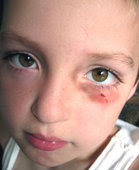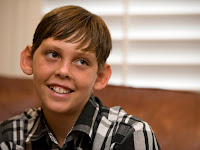Children & Teens on the Autism Spectrum Who Purposely Injure Themselves

“I am wondering if there are a larger number of young people with Aspergers and autism who self mutilate out of depression, anxiety and other pressing emotions more so than typical people. I want to know if there are members with Aspergers on this site that have ever engaged in this activity and what caused it …depression, anxiety, or is it from the the disorder? Also, is it common for a child with an Autism Spectrum Disorder to physically hurt himself on purpose ...and what can be done to stop him from doing this?" Self-injury (also called self-harming and self-mutilation) is often a coping mechanism, particularly with the feeling of being rejected. This is a particular problem for anyone who has difficulty in understanding non-verbal communication. For most people, understanding facial expressions, body language, etc., is instinctive, starting as babies before language acquisition. But just as some people having hearing difficulties or are short-sighted or color-blind, o




